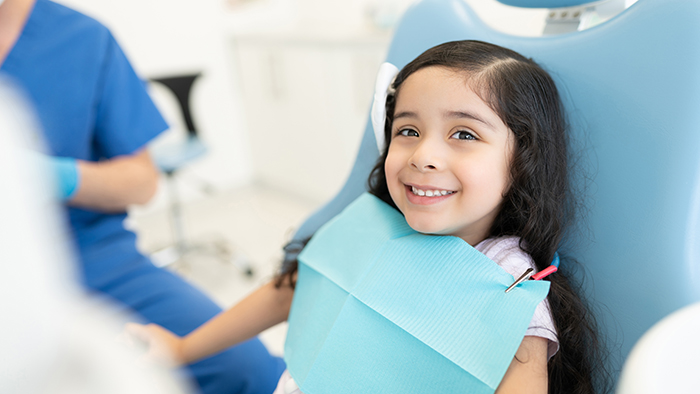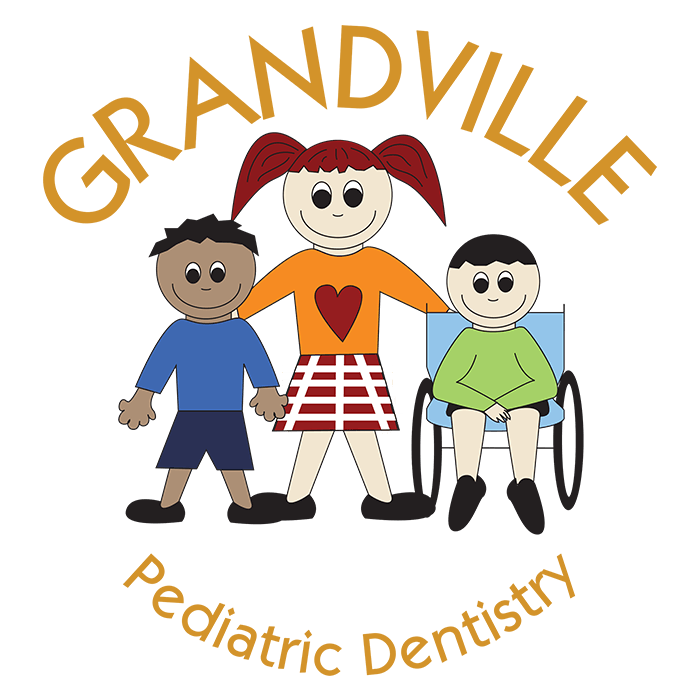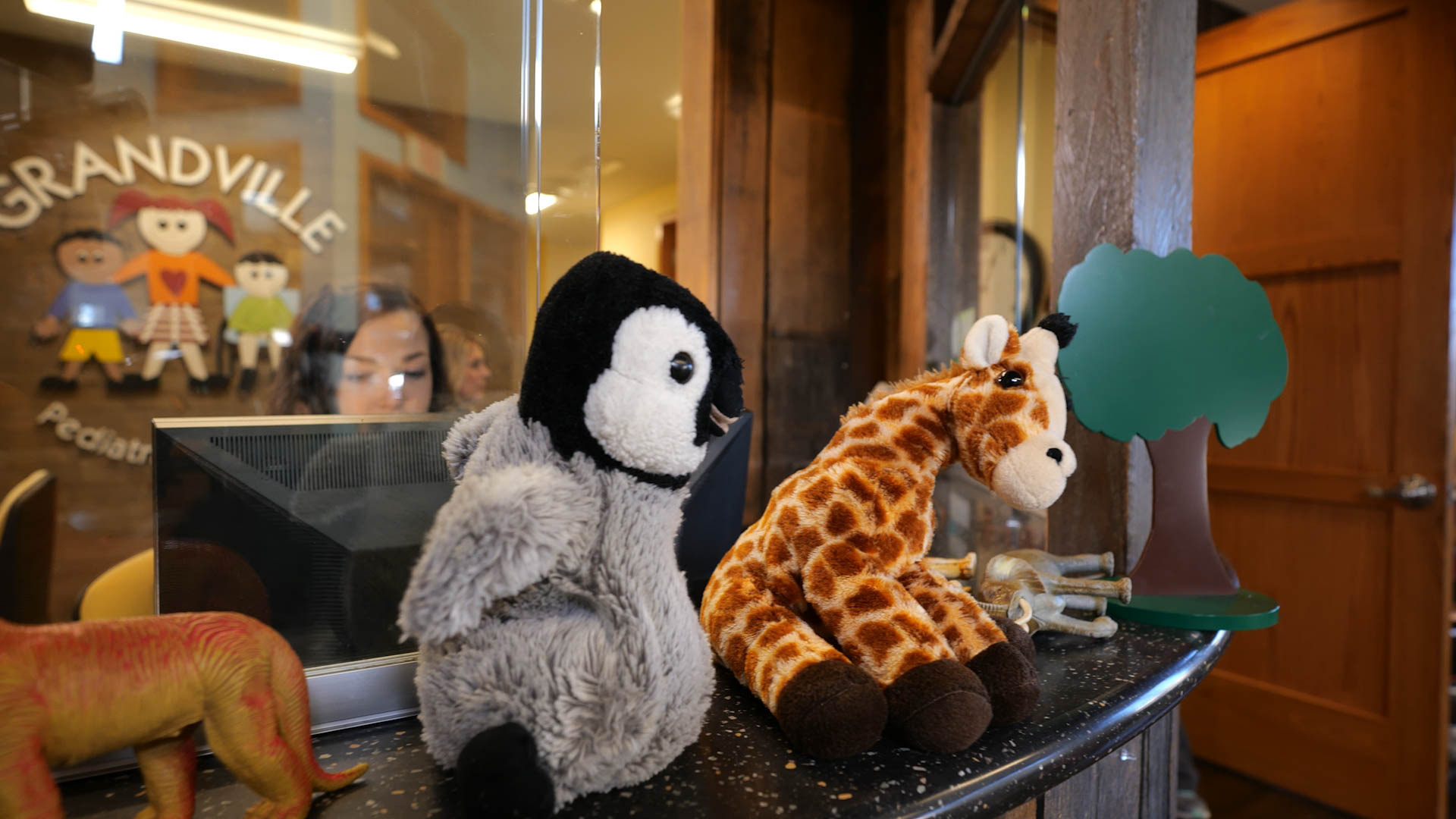3 Comfort Methods We Provide for Your Child

When it comes to the dentist, has your child ever expressed genuine fear ahead of their appointment? Do they have trouble sitting still while being examined or do they simply have extensive dental needs? If you answered yes to any of these questions, our Grandville pediatric dentists may suggest some form of dental sedation.
Here are the 3 types of comfort methods involving sedation that we can administer so your child feels relaxed throughout their time with us.
Sedation Dentistry: What Is It?
One of our specializations inside of our Grandville, MI, pediatric dental office includes sedation dentistry. This means that we offer multiple forms of sedation to aid in the completion of necessary pediatric dental treatment while also easing nerves in children. Sedation can be a safe option to try when it otherwise proves difficult for your child to relax.
Because all patients are different, not everyone may be given the same type of dental sedation for anxiety. Each method depends on the treatment that your child needs done and their overall level of fear. Our local pediatric dentists will always discuss every detail with you before getting started so everyone is on the same page.
To Help Ease Dental Anxiety, Our Staff Offers:
1. Laughing Gas
When you think of sedation at the dentist, there’s a good chance that laughing gas pops into your head first. Laughing gas is a safe, mild sedative that is administered through a mask placed over the nose.
Patients are instructed to inhale the gas by breathing in and out through the nose while our dentists perform the desired treatment. Despite the excitable name, laughing gas will make your child relaxed and calm although uncontrollable giggles are not an uncommon side effect.
Your child will be able to remain awake and cooperative while inhaling the laughing gas. This type of mild dental sedation is commonly used in our office for restorative procedures (fillings, dental crowns, tooth extractions) or for children who experience high levels of dental anxiety.
2. Oral Conscious Sedation
Another low level sedative, is provided to your child in the form of ingestible medication. This comfort method is offered in our office and is also generally recommended for children who are overly anxious or fidgety in the dental chair.
Our experienced dental team will oversee the administration of the oral sedation before the procedure can begin and make sure your child is taken care of throughout. Much like laughing gas, your child will likely not fall asleep but will be in a calm state.
If helpful, young patients are also allowed to listen to music or bring a stuffed animal to enjoy while they lie in the chair. Overall, this type of dental sedation for kids can help reduce the number of instances that your child has to come into our office for treatment as more can be done in one visit.
3. General Anesthesia at Hospital (or In-Office)
When other methods of sedation are not an option, we do offer for some patients. This is a more intensive process compared to the other two listed above and not all children may be eligible but it remains safe as treatment is monitored by both our dental team and an anesthesia team.
Suitable for more extensive dental procedures or those with severe anxiety, general anesthesia will be administered through the Helen DeVos Children’s Hospital for patients who are not qualified to be sedated in our office. Your child will be asleep while under anesthesia but will be continually monitored to ensure they are doing well as our pediatric dentists work to provide all dental treatment in one concise visit.
Would a hospital setting be too stressful for your child? If they qualify, we can have a licensed dental anesthesiologist from CarePoint Anesthesia come in with the necessary equipment for an efficient visit. This option is available upon request so please feel free to discuss this with our team of board-certified pediatric dentists.
Would My Child Benefit from Dental Sedation?
Pediatric dental sedation isn’t just for kids with extreme dental phobia. It can be beneficial for various situations, including those with:
- A Strong Gag Reflex: Some patients experience a gag reflex so strong that it makes dental work, even as simple as a cleaning, almost impossible. Sedation for pediatric dental procedures helps relax the muscles, making it easier for our dentists to perform the necessary procedures.
- A Low Pain Tolerance or Sensitive Teeth: If dental procedures have been uncomfortable in the past due to sensitivity or pain, sedation can help ensure a pain-free experience.
- A Need for Complex or Lengthy Procedures: Multiple or lengthy treatments can feel overwhelming. Sedation dentistry allows these procedures to be completed with minimal discomfort, even if they take several hours.
- An Inability to Sit Still: For some, staying still for an extended period is a challenge. Using this option helps keep the body relaxed, allowing our pediatric dentists to work efficiently.
- Previous Traumatic Dental Experiences: If your child has had a negative experience in the past, sedation can help prevent those memories from causing anxiety during future visits.
Call Our Office Today
Whether your child is coming in for a routine dental cleaning or a more in-depth procedure, sedation may be right for them. Our pediatric dentists in Grandville, MI, are highly qualified and will work with you to recommend what is best for your child at the time. Call Grandville Pediatric Dentistry today at (616) 531-3430 to request an appointment.
This blog post has been updated.


